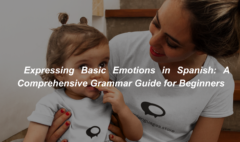Und was machst du? – A Marxist Approach to Learning German
Und was machst du? – A Marxist Approach to Learning German
Estimated reading time: 13 minutes
Welcome to another revolutionary lesson on learning German, comrades! Today, we’re diving into a crucial topic from the Netzwerk A2 book: “Und was machst du?” (And what do you do?). In this dialectical journey, we’ll explore the intricacies of self-introduction, reporting past events, making appointments, providing reasons, understanding information on a homepage, and introducing a restaurant.
By the end of this blog, you’ll not only master these elements but also gain insight into the German culture, which, in the true spirit of Marxist philosophy, is a reflection of the socio-economic structures within society. So, let’s embark on this linguistic and cultural journey together.

1. Self-Introduction (Selbstvorstellung)
The foundation of any meaningful interaction begins with the self. In German, as in life, how you present yourself is crucial to establishing connections. In a capitalist society, self-introduction might be a mere formality, a way to network and climb the social ladder. But in our Marxist understanding, it’s about building solidarity and mutual understanding.
Example Phrases:
- Ich heiße Karl.
(I am called Karl.)
मेरा नाम कार्ल है।
(mera naam Kaarl hai.) - Ich komme aus Berlin.
(I come from Berlin.)
मैं बर्लिन से हूँ।
(main Berlin se hoon.) - Ich bin Lehrer.
(I am a teacher.)
मैं शिक्षक हूँ।
(main shikshak hoon.) - Ich bin 35 Jahre alt.
(I am 35 years old.)
मैं 35 साल का हूँ।
(main 35 saal ka hoon.) - Ich wohne in einer WG.
(I live in a shared apartment.)
मैं एक साझा अपार्टमेंट में रहता हूँ।
(main ek saajha apartment mein rehta hoon.)
Cultural Note:
Die WG (Wohngemeinschaft) is a common living arrangement in Germany, especially among students and young adults. A WG, or shared apartment, reflects the collectivist approach that contrasts sharply with capitalist ideals of individual ownership. It’s not just about saving money but about fostering a sense of community. In many ways, this is a modern embodiment of Marx’s ideals, where resources are shared, and living is communal.
2. Reporting Past Events (Vergangene Ereignisse berichten)
History is a crucial teacher, comrades, and reporting past events allows us to reflect on our collective experiences. When discussing the past in German, we employ the Perfekt (perfect) tense, which is a standard way to talk about what has happened.
Example Phrases:
- Ich habe gestern einen Film gesehen.
(I watched a movie yesterday.)
मैंने कल एक फिल्म देखी।
(mainne kal ek film dekhi.) - Wir haben letztes Wochenende eine Wanderung gemacht.
(We went hiking last weekend.)
हमने पिछले सप्ताहांत एक पर्वतारोहण की।
(humne pichle saptaahant ek parvataarohan ki.) - Sie hat das Buch schon gelesen.
(She has already read the book.)
उसने पहले ही किताब पढ़ ली है।
(usne pehle hi kitaab padh li hai.) - Ich bin nach München gefahren.
(I traveled to Munich.)
मैं म्यूनिख गया था।
(main Munich gaya tha.) - Er hat den Termin vergessen.
(He forgot the appointment.)
उसने अपॉइंटमेंट भूल गया।
(usne appointment bhool gaya.)
Cultural Note:
In Germany, punctuality and reliability are highly valued traits. The culture emphasizes the importance of keeping appointments and being on time. When one fails to adhere to these social norms, it reflects poorly on their character, much like how the failure of a capitalist system reflects the need for a revolutionary change. In German society, as in a well-functioning socialist state, every action has its place and time.
3. Making Appointments (Termine vereinbaren)
In the course of daily life, appointments are inevitable. Whether it’s a meeting with comrades or a discussion on the redistribution of resources, setting up appointments requires a good command of the language.
Example Phrases:
- Kannst du morgen um 10 Uhr?
(Can you do 10 o’clock tomorrow?)
क्या आप कल 10 बजे मिल सकते हैं?
(kya aap kal 10 baje mil sakte hain?) - Ich möchte einen Termin vereinbaren.
(I would like to make an appointment.)
मैं एक अपॉइंटमेंट लेना चाहता हूँ।
(main ek appointment lena chahta hoon.) - Passt dir Freitag um 14 Uhr?
(Does Friday at 2 PM suit you?)
क्या शुक्रवार को दोपहर 2 बजे ठीक रहेगा?
(kya shukravaar ko dopahar 2 baje theek rahega?) - Der Termin ist um 15 Uhr.
(The appointment is at 3 PM.)
अपॉइंटमेंट 3 बजे का है।
(appointment 3 baje ka hai.) - Ich habe den Termin notiert.
(I have noted the appointment.)
मैंने अपॉइंटमेंट नोट कर लिया है।
(mainne appointment note kar liya hai.)
Cultural Note:
Germans are known for their structured and orderly approach to life. This extends to the way they handle appointments. Unlike the chaotic spontaneity often found in capitalist markets, where everything is dictated by profit and chance, German society thrives on planning and punctuality. When you make an appointment, it is a commitment, reflecting the values of discipline and respect for others’ time.
4. Providing Reasons (Begründungen geben)
Providing reasons is not just a linguistic skill but a philosophical one. In Marxist theory, understanding the reasons behind social and economic structures is crucial. Similarly, in German, explaining why something is the way it is requires clear and concise communication.
Example Phrases:
- Ich bin müde, weil ich gestern spät ins Bett gegangen bin.
(I am tired because I went to bed late yesterday.)
मैं थका हुआ हूँ क्योंकि मैं कल देर से सोने गया था।
(main thaka hua hoon kyonki main kal der se sone gaya tha.) - Wir bleiben zu Hause, weil es regnet.
(We are staying home because it’s raining.)
हम घर पर रह रहे हैं क्योंकि बारिश हो रही है।
(hum ghar par reh rahe hain kyonki baarish ho rahi hai.) - Er konnte nicht kommen, weil er krank ist.
(He couldn’t come because he is sick.)
वह नहीं आ सका क्योंकि वह बीमार है।
(vah nahin aa saka kyonki vah beemaar hai.) - Ich habe es nicht verstanden, weil es zu schnell war.
(I didn’t understand because it was too fast.)
मैंने इसे नहीं समझा क्योंकि यह बहुत तेजी से था।
(mainne ise nahin samjha kyonki yeh bahut tezi se tha.) - Sie ist glücklich, weil sie eine gute Note bekommen hat.
(She is happy because she got a good grade.)
वह खुश है क्योंकि उसे अच्छा ग्रेड मिला है।
(vah khush hai kyonki use achha grade mila hai.)
Cultural Note:
In German culture, directness is valued. When providing reasons, it’s important to be clear and to the point. This aligns with the efficiency that is often attributed to German society. Much like in a socialist system where transparency is key, in German communication, providing reasons is about being honest and straightforward, ensuring that everyone understands the ‘why’ behind decisions and actions.
-
Product on sale
 German B1
German B1₹32,600.00
₹42,600.00 -
Product on sale
 German A2
German A2₹24,300.00
₹32,600.00
5. Understanding Information on a Homepage (Informationen auf einer Homepage verstehen)
In the digital age, understanding how to navigate a homepage is essential. Websites are the new public squares where information is disseminated. In Germany, where efficiency and clarity are paramount, homepages are often straightforward and packed with relevant details.
Example Phrases:
- Auf der Startseite finden Sie die neuesten Nachrichten.
(On the homepage, you will find the latest news.)
मुखपृष्ठ पर आपको नवीनतम समाचार मिलेंगे।
(mukhaprishth par aapko naveenatam samachar milenge.) - Klicken Sie hier, um mehr zu erfahren.
(Click here to learn more.)
अधिक जानने के लिए यहाँ क्लिक करें।
(adhik jaanane ke liye yahan click karein.) - Die Öffnungszeiten stehen unten auf der Seite.
(The opening hours are at the bottom of the page.)
खोलने के समय नीचे पृष्ठ पर दिए गए हैं।
(kholne ke samay neeche prishth par diye gaye hain.) - Sie können uns über das Kontaktformular erreichen.
(You can reach us via the contact form.)
*आप हमसे संपर्क फ़ॉर्म के माध्यम से संपर्क कर सकते हैं।*
(aap humse sampark form ke maadhyam se sampark kar sakte hain.) - Alle Informationen sind in den FAQs zu finden.
(All information can be found in the FAQs.)
सभी जानकारी FAQs में मिल सकती है।
(sabhi jaankaari FAQs mein mil sakti hai.)
Cultural Note:
German websites often reflect the cultural emphasis on clarity and functionality. They are usually well-organized, with information being easy to find. This efficiency mirrors the socialist ideal of a society where resources (in this case, information) are readily available to all, without the clutter and confusion that capitalist systems often produce.
6. Introducing a Restaurant (Ein Restaurant vorstellen)
In a society where comrades share everything, food plays a central role in bringing people together. Introducing a restaurant is not just about suggesting a place to eat, but about recommending a space where people can connect and share ideas.
Example Phrases:
- Das Restaurant heißt “Zum roten Stern”.
(The restaurant is called “To the Red Star”.)
रेस्टोरेंट का नाम “जुम रोटेन स्टर्न” है।
(restaurant ka naam “Zum roten Stern” hai.) - Es ist ein gemütliches Lokal mit leckerem Essen.
(It’s a cozy place with delicious food.)
यह एक आरामदायक जगह है जहाँ स्वादिष्ट खाना मिलता है।
(yah ek aaraamdaayak jagah hai jahan swaadisht khaana milta hai.) - Die Speisekarte bietet viele vegetarische Gerichte.
(The menu offers many vegetarian dishes.)
मेनू में कई शाकाहारी व्यंजन हैं।
(menu mein kai shaakaahaari vyanjan hain.) - Die Preise sind fair und die Portionen sind groß.
(The prices are fair, and the portions are large.)
कीमतें उचित हैं और परोसने के हिस्से बड़े हैं।
(keematen uchit hain aur porsan ke hisse bade hain.) - Es gibt auch eine große Auswahl an Getränken.
(There’s also a large selection of drinks.)
यहाँ पेय पदार्थों का भी बड़ा चयन है।
(yahan pey padarthon ka bhi bada chayan hai.)
Cultural Note:
Germany has a unique dining experience known as “Dinner in the Dark” or “Essen im Dunkeln”. This is where diners eat in complete darkness, served by blind or visually impaired waiters. The concept behind this is to heighten the other senses and to experience food in a new way. This aligns with the Marxist idea of challenging the status quo and experiencing the world from different perspectives. It’s a reminder that in a world driven by visual stimuli, there’s value in exploring the less obvious.
Vocabulary List
1. Freizeit (Leisure)
- das Hobby (hobby)
Mein Hobby ist Schwimmen.
(My hobby is swimming.)
मेरा शौक तैराकी है।
(mera shauk tairaaki hai.) - die Freizeit (leisure time)
In meiner Freizeit lese ich gern.
(In my leisure time, I like to read.)
अपनी फुरसत के समय में मुझे पढ़ना पसंद है।
(apni fursat ke samay mein mujhe padhna pasand hai.) - die Reise (trip, journey)
Wir planen eine Reise nach Italien.
(We are planning a trip to Italy.)
हम इटली की यात्रा की योजना बना रहे हैं।
(hum Italy ki yaatra ki yojna bana rahe hain.) - das Buch (book)
Ich lese ein interessantes Buch.
(I am reading an interesting book.)
मैं एक दिलचस्प किताब पढ़ रहा हूँ।
(main ek dilchasp kitaab padh raha hoon.) - die Musik (music)
Musik hören macht Spaß.
(Listening to music is fun.)
संगीत सुनने में मज़ा आता है।
(sangeet sunne mein maza aata hai.) - das Kino (cinema)
Wir gehen heute Abend ins Kino.
(We are going to the cinema tonight.)
हम आज रात सिनेमा जा रहे हैं।
(hum aaj raat cinema ja rahe hain.) - das Spiel (game)
Wir spielen ein Spiel zusammen.
(We are playing a game together.)
हम एक साथ एक खेल खेल रहे हैं।
(hum ek saath ek khel khel rahe hain.) - das Theater (theater)
Das Theaterstück war sehr gut.
(The play was very good.)
नाटक बहुत अच्छा था।
(natak bahut accha tha.) - das Schwimmbad (swimming pool)
Im Sommer gehe ich oft ins Schwimmbad.
(In summer, I often go to the swimming pool.)
गर्मी में मैं अक्सर स्विमिंग पूल जाता हूँ।
(garmi mein main aksar swimming pool jaata hoon.) - die Ausstellung (exhibition)
Die Ausstellung war interessant.
(The exhibition was interesting.)
प्रदर्शनी दिलचस्प थी।
(pradarshni dilchasp thi.)
2. Tätigkeiten (Activities)
- arbeiten (to work)
Ich arbeite in einem Büro.
(I work in an office.)
मैं एक कार्यालय में काम करता हूँ।
(main ek karyalay mein kaam karta hoon.) - lernen (to learn)
Ich lerne Deutsch.
(I am learning German.)
मैं जर्मन सीख रहा हूँ।
(main German seekh raha hoon.) - kochen (to cook)
Ich koche gern.
(I like to cook.)
मुझे खाना बनाना पसंद है।
(mujhe khaana banaana pasand hai.) - lesen (to read)
Er liest ein Buch.
(He is reading a book.)
वह एक किताब पढ़ रहा है।
(vah ek kitaab padh raha hai.) - schreiben (to write)
Ich schreibe einen Brief.
(I am writing a letter.)
मैं एक पत्र लिख रहा हूँ।
(main ek patr likh raha hoon.) - essen (to eat)
Wir essen zusammen.
(We eat together.)
हम एक साथ खाते हैं।
(hum ek saath khate hain.) - trinken (to drink)
Ich trinke Wasser.
(I am drinking water.)
मैं पानी पी रहा हूँ।
(main paani pee raha hoon.) - schlafen (to sleep)
Er schläft noch.
(He is still sleeping.)
वह अभी भी सो रहा है।
(vah abhi bhi so raha hai.) - sprechen (to speak)
Sie spricht gut Deutsch.
(She speaks German well.)
वह अच्छी जर्मन बोलती है।
(vah acchi German bolti hai.) - fahren (to drive, to travel)
Wir fahren nach Berlin.
(We are traveling to Berlin.)
हम बर्लिन जा रहे हैं।
(hum Berlin ja rahe hain.)
3. Restaurant (Restaurant)
- das Essen (food)
Das Essen ist sehr lecker.
(The food is very tasty.)
खाना बहुत स्वादिष्ट है।
(khaana bahut swaadisht hai.) - die Speisekarte (menu)
Die Speisekarte hat viele Optionen.
(The menu has many options.)
मेनू में कई विकल्प हैं।
(menu mein kai vikalp hain.) - der Kellner (waiter)
Der Kellner ist freundlich.
(The waiter is friendly.)
वेटर मित्रवत है।
(waiter mitravat hai.) - das Getränk (drink)
Was möchtest du trinken?
(What would you like to drink?)
आप क्या पीना चाहेंगे?
(aap kya peena chahenge?) - das Gericht (dish)
Das Gericht des Tages ist Fisch.
(The dish of the day is fish.)
आज का विशेष व्यंजन मछली है।
(aaj ka vishesh vyanjan machhli hai.) - der Tisch (table)
Unser Tisch ist am Fenster.
(Our table is by the window.)
हमारी मेज खिड़की के पास है।
(hamaari mej khidki ke paas hai.) - die Rechnung (bill)
Die Rechnung, bitte. (The bill, please.)
कृपया बिल दें।
(kripya bill dein.) - die Reservierung (reservation)
Haben Sie eine Reservierung?
(Do you have a reservation?)
क्या आपके पास आरक्षण है?
(kya aapke paas aarashan hai?) - das Besteck (cutlery)
Das Besteck liegt auf dem Tisch.
(The cutlery is on the table.)
कटलरी मेज पर रखी है।
(cutlery mej par rakhi hai.) - die Nachspeise (dessert)
Möchten Sie eine Nachspeise?
(Would you like a dessert?)
क्या आप मिठाई चाहेंगे?
(kya aap mithai chahenge?)
Enhance Your German Skills!
To improve your German further, consider enrolling in our A1 Level German Course at Learn Languages Store for just Rs. 16,300. Our courses are designed to help you build a strong foundation in the German language in a fun and engaging way.
Contact Us to Learn More!
For more information about our courses, feel free to reach out to us at:
Address:
330, 3rd Floor, Big Splash (Near Vashi Bus Depot),
Sector 17, Vashi,
Navi Mumbai, Maharashtra 400703
Phone: +91-9594113111
Email: services@learnlanguages.store
Don’t miss the opportunity to enhance your language skills! Sign up today and start your journey to fluency in German!
Conclusion
Through this exploration of “Und was machst du?” from the Netzwerk A2 book, we have navigated the fundamental aspects of self-introduction, recounting past events, making appointments, providing reasons, understanding information on homepages, and introducing a restaurant—all through the lens of Marxist philosophy.
Understanding German isn’t just about learning a language; it’s about embracing a culture that values precision, community, and shared experiences. As you continue your linguistic journey, remember that language is not just a tool of communication but a reflection of the social and economic structures that shape our lives. By learning German, you are not just learning to speak; you are engaging in a deeper understanding of a society that, much like Marxism, values clarity, structure, and collective effort.
So, comrade, keep practicing, keep learning, and most importantly, keep questioning the world around you. In the words of Marx, “The philosophers have only interpreted the world in various ways; the point, however, is to change it.” And with your newfound knowledge of German, you are well on your way to doing just that.










